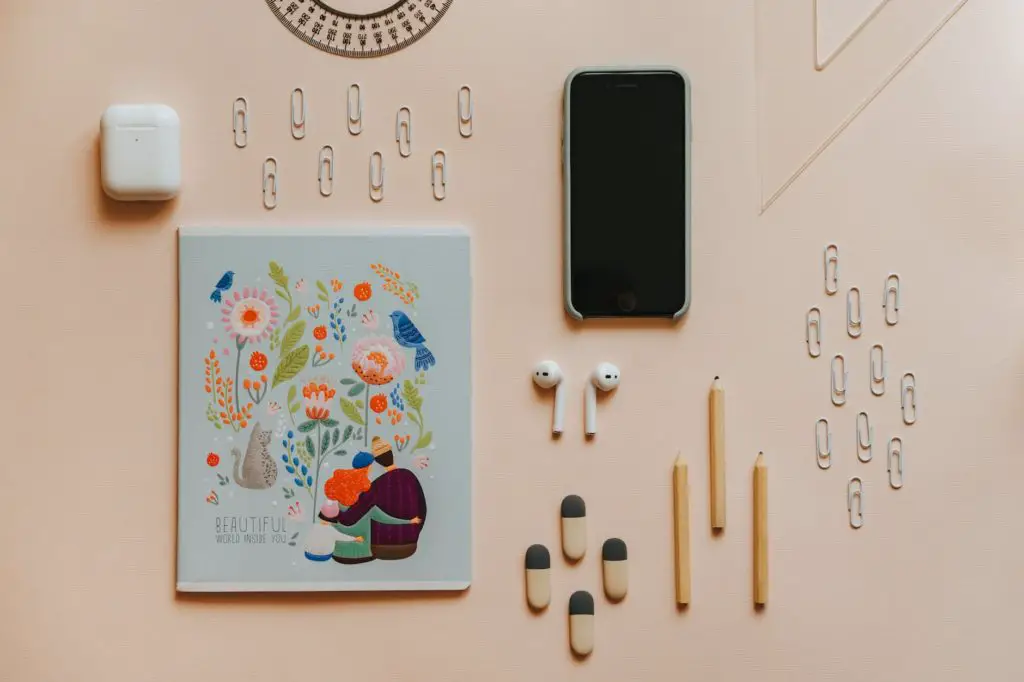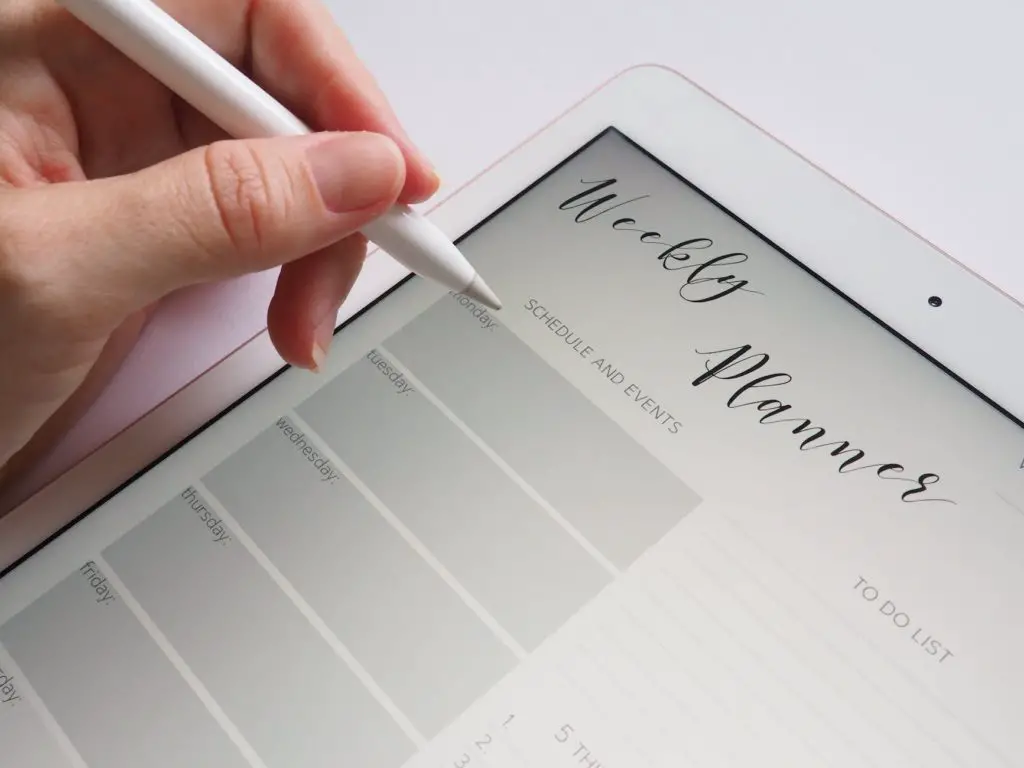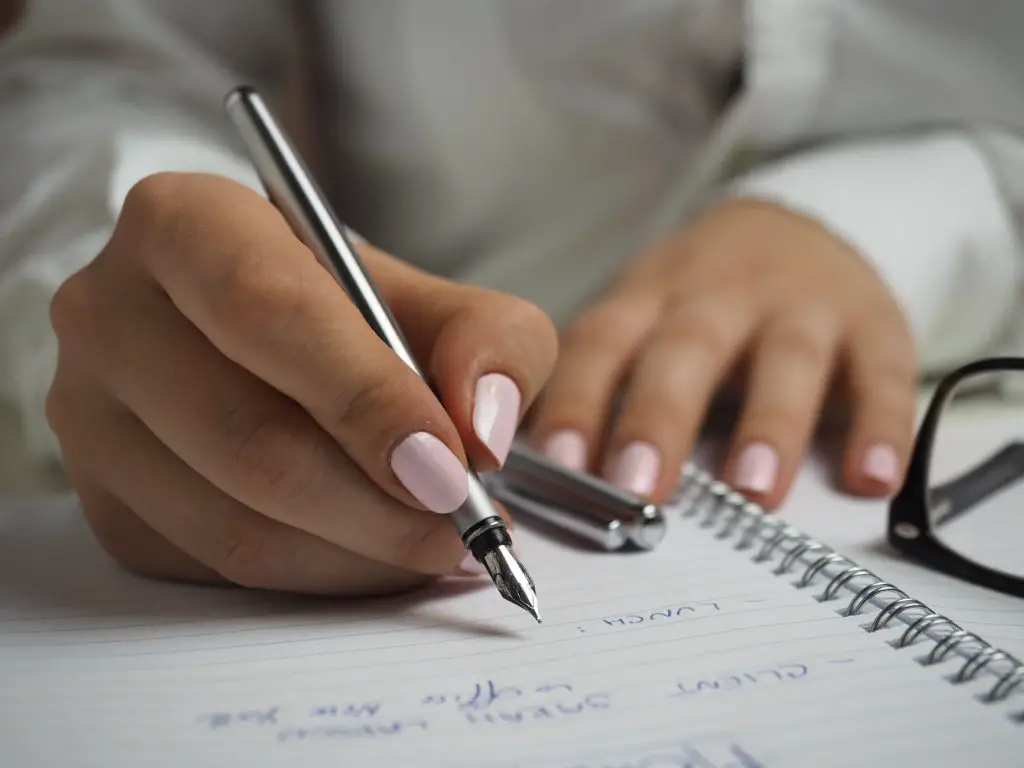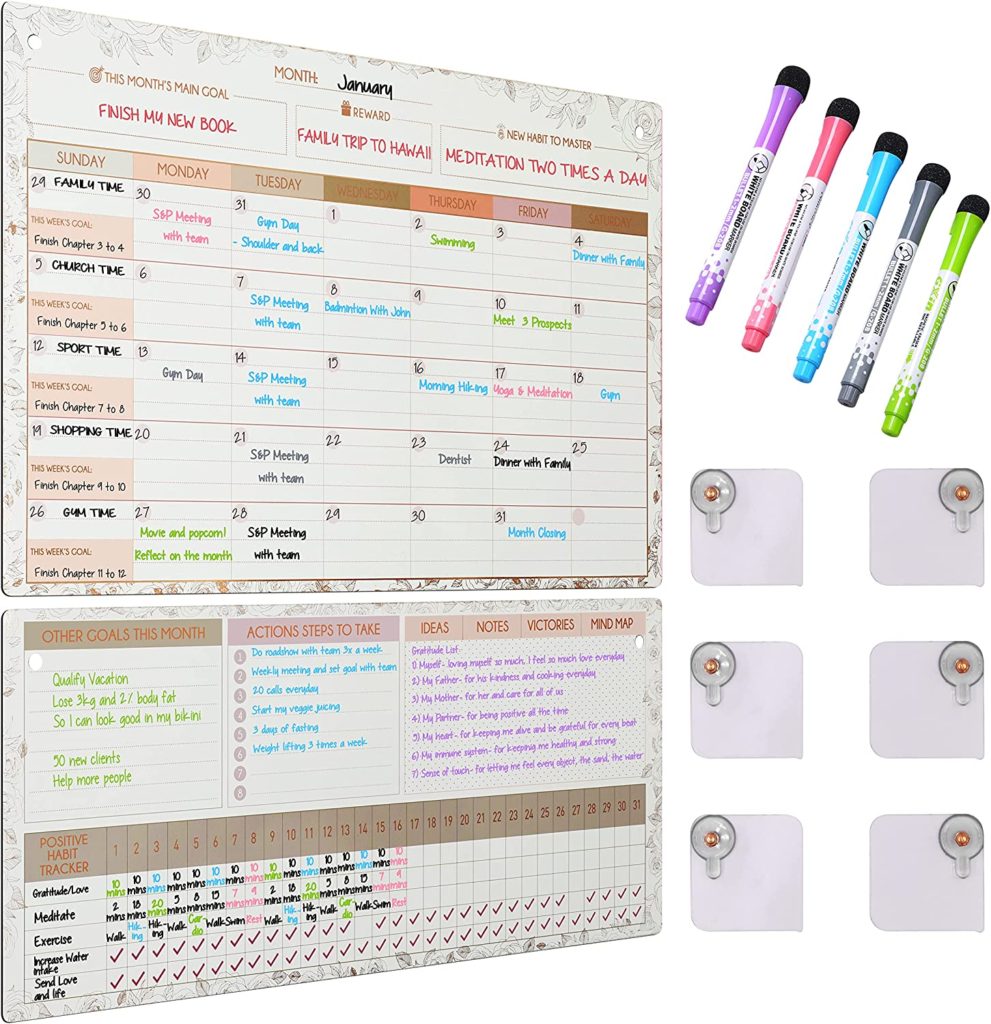Before getting organized, it is essential to understand that organization is a skill. However, you can grow the organizational talent and implement it in your life. With intention and understanding of how organization skills can help your family, organizing your family and home will go more smoothly. Five main tips can help strengthen your organizational skill and get you and your family on the right track regarding organizing. These five tips are to start with a plan, declutter, create a system, set up a routine, and stay consistent.
Organization skills are efficiently and effectively managing tasks, time, and resources. These skills are essential for personal, work, and family success, as they allow you to stay focused, productive, and on top of your responsibilities.
Check out these great tools on Amazon to help with your organizational journey!

Some common examples of organizational skills are listed below: (go through each point and see which areas you thrive in, and which are still a work in progress).
- Time management: The ability to prioritize tasks, set goals, and manage time effectively is critical to organizational skills. This involves setting realistic deadlines, breaking tasks into manageable steps, and avoiding procrastination.
- Prioritization: Finding the most critical tasks and prioritizing them is essential for staying organized. This involves considering deadlines, importance, and urgency when deciding which tasks to tackle first.
- Planning and goal setting: Setting clear goals and creating a plan for achieving them is essential to organizational skills. This involves breaking down larger goals into smaller, more manageable tasks and creating a timeline for completing them.
- Communication: Effective communication is essential for staying organized and working collaboratively with others. This involves clearly expressing ideas and expectations, listening actively, and constructively supplying feedback.
- Attention to detail: Paying attention to details is essential for ensuring that tasks are completed accurately and efficiently. This involves double-checking work, proofreading documents, and reviewing vital information to ensure accuracy.
- Flexibility: Adapting to changing circumstances and adjusting plans as needed is essential to organizational skills. This involves being open to new ideas, pivoting when necessary, and thinking creatively to solve problems.
If you want to get your home on track, remove the stressful days and help balance your family life more with organization, then before jumping into it, take a mental inventory of your organization skills. When you are starting the process of getting organized, it’s essential to take a mental inventory of your current organizational skills by comparing them against the six organizational skills listed above.
Give yourself a personal organization score of 1 for each skill, and then review your results to help you understand your current organizational skill.
- Highly organized – 5 to 6 points
- Average organizational skill – 3 to 4 points
- Lacking organizational skill – 0 to 2 points

If your organizational skills are lacking, organizing your life will be a lot more complex and not as enjoyable for you. So, investigate strengthening your organizational skills by following the five tips listed below to get you to enhance your organizational muscle.
- Start with a plan: Before organizing, take some time to create a plan. Decide what areas of your life or home need managing and generate a list of tasks that need to be done. This will help you stay focused and motivated and make organizing less overwhelming.
- Declutter: One of the most critical steps in getting organized is decluttering. Go through your belongings and remove anything you no longer need or use. This can help create more space and make managing what you use and need more accessible. Decluttering also helps free up some time in your schedule since you don’t need to spend as much time looking for things. Check out this article that goes into more detail on this topic.
- Create a system: Once you have decluttered, create a system for organizing the things you have left. This could involve using storage containers, labeling items, or creating designated spaces for specific items. Having a plan will make finding and accessing the things you need easier.
- Set up routines: Routines can help you stay organized over the long term. For example, set aside time daily to tidy up or create a cleaning schedule to ensure that specific tasks are done regularly. By incorporating organization into your daily routine, you can make it a habit and ensure it becomes a part of your lifestyle.
- Stay consistent: Finally, staying consistent in your efforts to get organized is essential. This means continuing to declutter, support your systems, and follow your routines even after you have achieved your first organizing goals. By making organization a part of your daily life, you can enjoy the benefits of a more streamlined and stress-free lifestyle.
As you strengthen your organizational skills, you can add to your list things you can try to stay organized in your own and family life. Here is just a brief list of some additional tips for getting organized:
- Use a calendar: Using a calendar can help you stay organized by keeping track of important dates, appointments, and deadlines. Make sure to write down everything you need to remember and refer to your calendar regularly to stay on track.
- Prioritize tasks: When creating your plan for organizing, prioritize the most important or time-sensitive tasks. This will help you stay focused and ensure that you are making progress toward your goals.
- Break tasks down: If a job feels overwhelming, break it down into smaller, more manageable steps. This will make the task less daunting and help you progress toward your goal.
- Get rid of duplicates: If multiple items serve the same purpose, get rid of the duplicates. This will help create more space and reduce clutter.
- Take advantage of vertical space: Using vertical space, such as installing shelves or hanging organizers, can help maximize storage space and organize your belongings.
- Use labels: Labeling items can help you quickly and easily find what you need. Use labels on storage containers, files, and other things to help keep everything organized.
- Be mindful of what you bring into your home: Finally, know what you get. Before buying something new, consider whether you need it and where you will store it. This can help prevent clutter and make staying organized over the long term easier.

Getting organized is a terrific mental health tool, and it helps to create a better balance in your home and life. If you have been living a highly disorganized life, I am sure you have seen how the clutter and chaos affect your physical and emotional state. Therefore, getting more organized by following the five simple tips above can teach you the skills you need to know to get on track both in your personal and family life.

